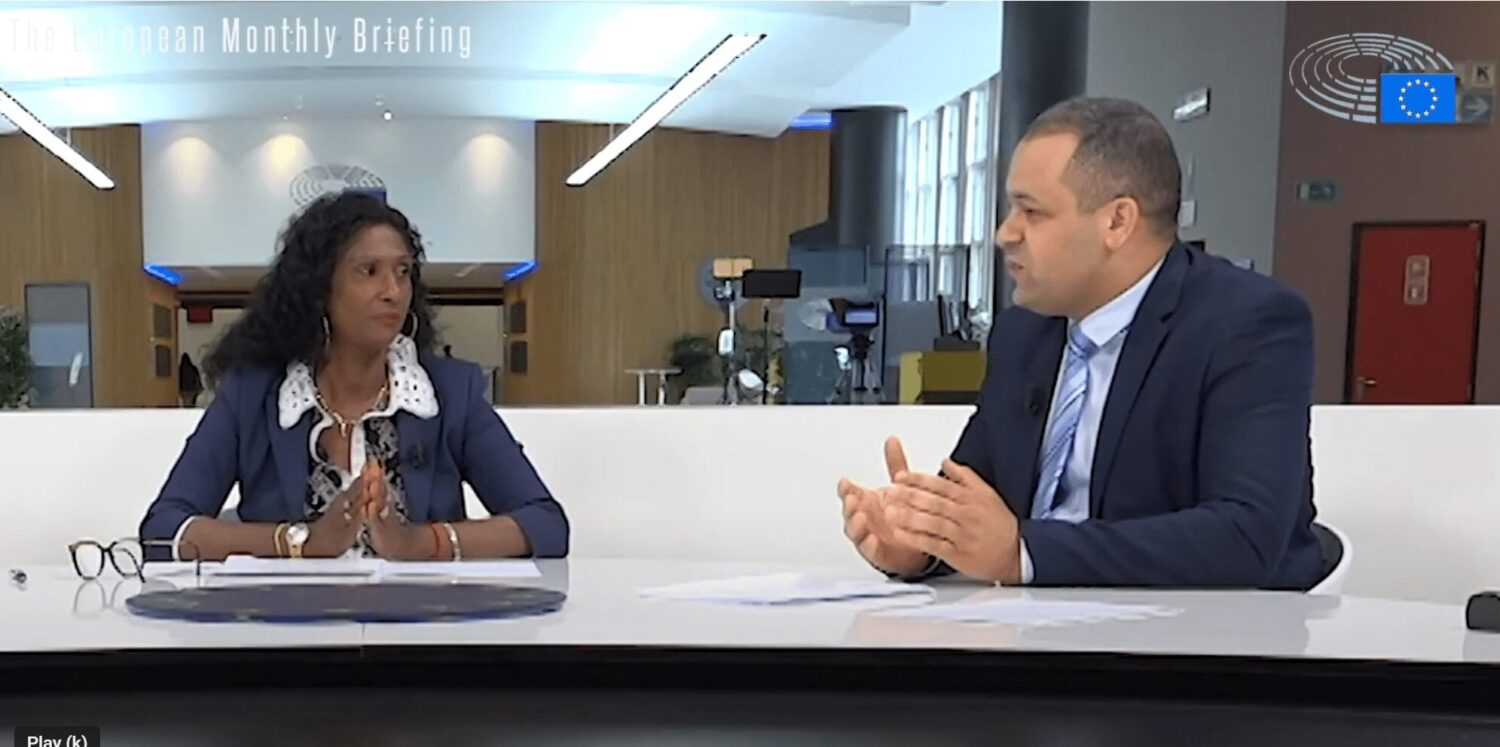French MEP Maxette Pirbakas, a member of the Committee on Regional Development and national president of the Rassemblement pour les français d’Outre-mer (RPFOM), was invited to take part in the monthly programme and discuss the problems facing agriculture in Europe.
Hosted by journalist Radouan Bachiri, the programme aims to discuss current affairs within the European Union, as well as topics such as neighbourhood policy, immigration, security and defence, human rights, regional development, international trade, fisheries and agriculture, women’s rights and gender equality, strengthening the integrity of the European Parliament and civil liberties and home affairs.
The MEP was invited to discuss the European Union’s agricultural policy because of her recent visit to Réunion on 25 and 26 May. In her capacity as MEP for Overseas France and national president of the Rassemblement des Français d’Outre-mer (RPFOM), she met with beekeepers from Réunion at the Saint-Philippe town hall.
The beekeepers outlined the challenges and problems facing their sector, including the problem of destroying hives infested with the small beetle.
“Bees have many parasites. One of these parasites is the small hive beetle, which is a colony pest. So in France, there is a systematic policy of eradication as soon as a case is detected. Clearly, if a small beetle, even a single one, is discovered in a hive, the hive is destroyed along with the bees. And not just that hive, but all the neighbouring hives. So it’s no coincidence that for one unfortunate little beetle detected, the government burns down 50 hives, killing millions of bees”, explains Ms Pirbakas.
This parasite poses a serious threat to hives and bee colonies, and beekeepers have asked Ms Pirbakas for help in talking to the European Parliament about this problem.
As a member of the Committee on Regional Development since 2019, the MEP returned in her interview to the objectives and certain fields of action of the REGI Committee.
“The Committee on Regional Development, known as the REGI Committee, is one of the most important committees in the European Parliament. It is important because it implements what is known as cohesion policy, i.e. aid for the development of the least favoured regions to bring them into line with the most favoured. To do this, it has at its disposal ERDF funds, dedicated to aid for innovation and research, digital technology and support for small and medium-sized enterprises (SMEs). The REGI Commission also has access to cohesion funds, which are dedicated to trans-European transport networks and environmental infrastructure projects. Finally, and very importantly, the REGI Committee has the ESF +, the European Social Fund, which finances projects linked to employment, training, apprenticeships and social inclusion”, says Maxette Pirbakas MEP.
The European Union’s agricultural policy is a major issue that requires particular attention. The challenges faced by beekeepers on La Réunion are just one example of the problems facing farmers across Europe. It is crucial that MEPs continue to support and defend the interests of farmers, finding effective solutions to ensure the sustainability and prosperity of the agricultural sector.
“What I stand for is a Europe that is open but not naïve. We need to protect our internal market, but not against all types of imports, only those that are not in line with our values. Other types of agricultural goods are welcome. We’re not afraid of any competition when it’s fair, and I’m telling you this as a farmer”, concludes Mrs Pirbakas.
Discussions and exchanges of information such as those that took place during The European Monthly Briefing help to raise awareness among the public and political decision-makers of the challenges facing European agriculture. Working together to develop agricultural policies is essential.












